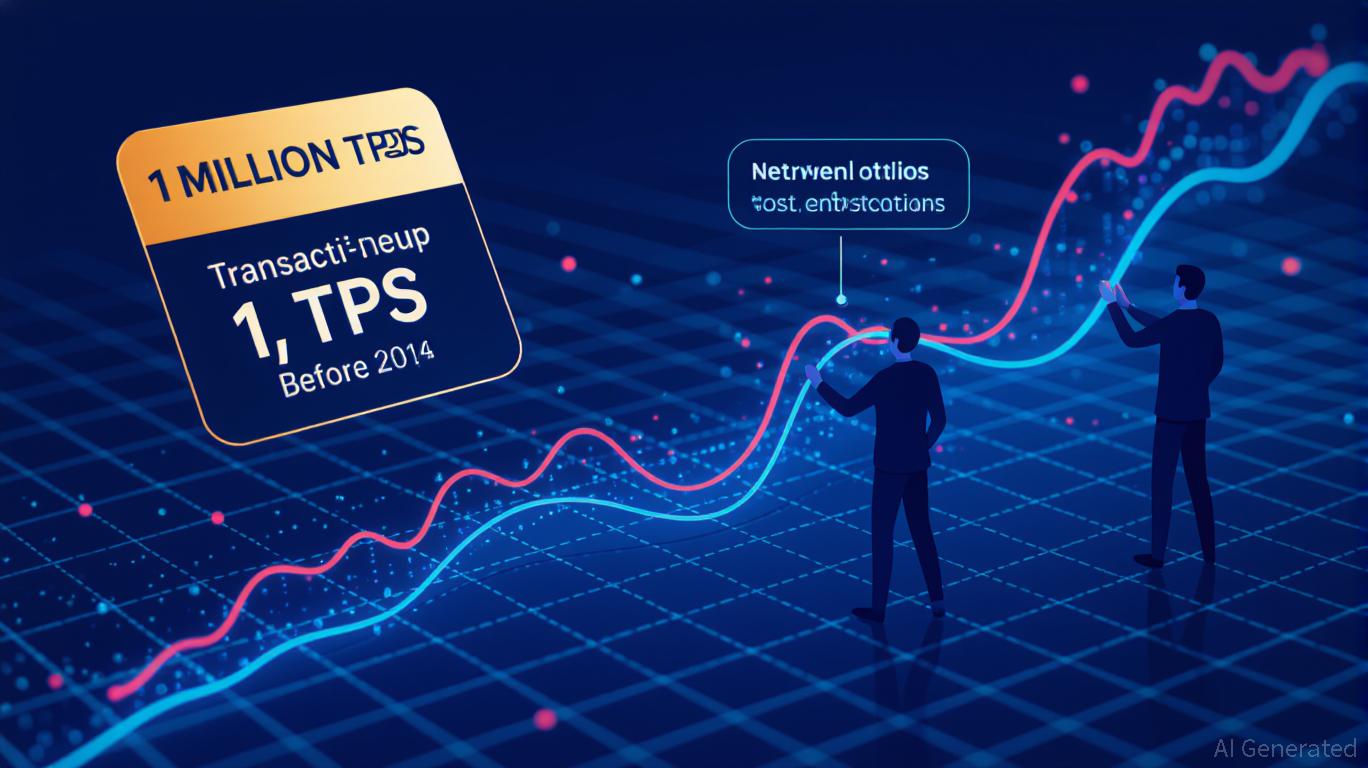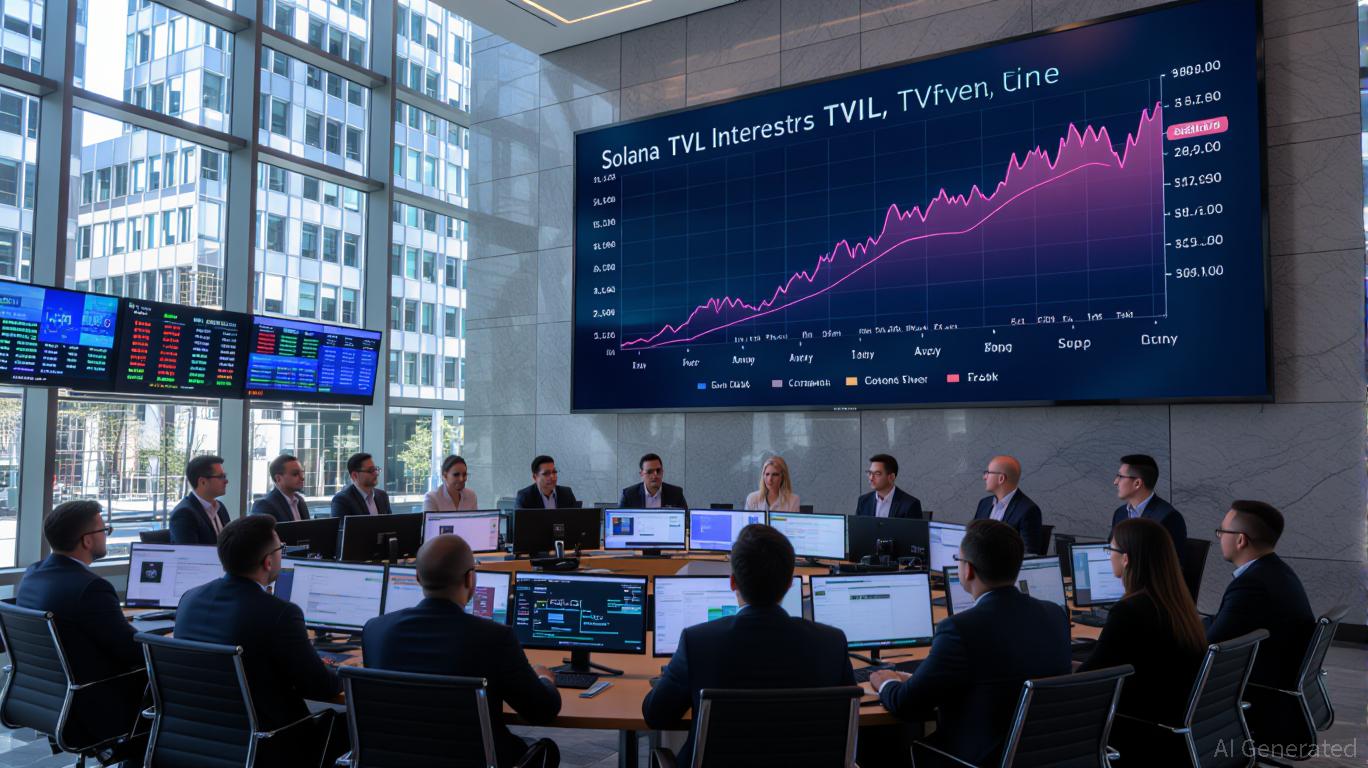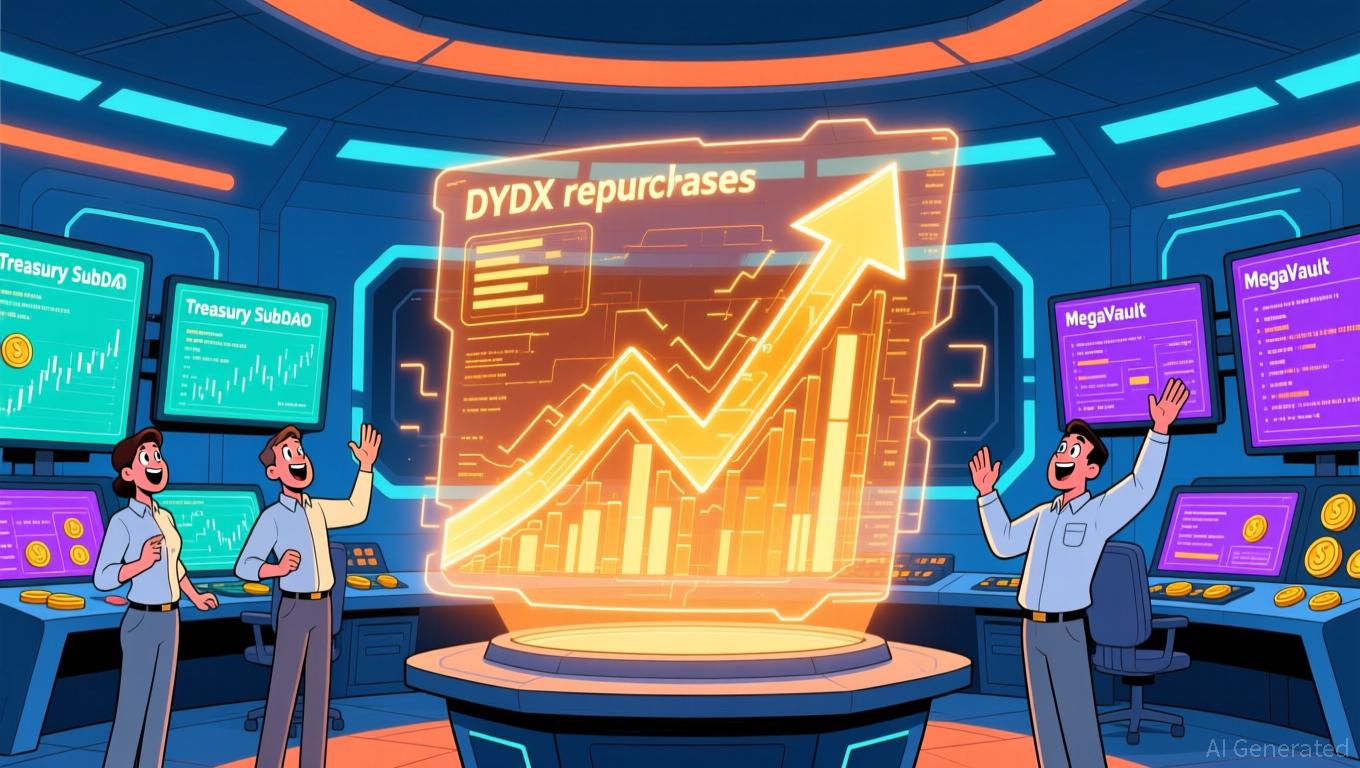Durov's Legal Victory Highlights the Ongoing Struggle Between Privacy and Government Oversight
- French authorities lifted a travel ban on Telegram CEO Pavel Durov after he complied with judicial supervision for a year. - Durov faces charges of complicity in alleged Telegram misuse for crimes, with potential 10-year prison and $550k fine if convicted. - He criticized French legal procedures and Macron's policies, highlighting tensions over digital privacy and blockchain integration. - The case underscores regulatory challenges for encrypted platforms, balancing user rights with accountability in a "
Telegram CEO Pavel Durov can now travel abroad without restrictions after French officials revoked a travel ban that had been in place during an ongoing probe into the messaging service,

The end of the travel ban represents a significant change in Durov’s legal situation. Previously, he was only allowed to stay in the United Arab Emirates—Telegram’s base—for up to two weeks before needing to return to France for police check-ins. With the new ruling,
Durov has openly criticized French officials,
The ongoing legal case underscores the friction between encrypted messaging services and government oversight. Legal analysts observe that proceedings involving tech leaders can last for years, with platforms like Telegram often operating in a legal "gray zone" between free expression and responsibility. Durov’s lawyers have not issued statements about the recent changes, but the CEO continues to be a central voice in discussions about digital freedoms.
The removal of the travel ban could affect how messaging platforms respond to regulatory pressures,
As the investigation continues, those involved in blockchain and privacy rights will be watching closely to see how the courts weigh user protections against regulatory requirements. For now, Durov’s restored ability to travel marks a pause in a legal dispute that is still far from settled.
Disclaimer: The content of this article solely reflects the author's opinion and does not represent the platform in any capacity. This article is not intended to serve as a reference for making investment decisions.
You may also like
SOL Price Forecast and Market Drivers: How On-Chain Enhancements and Macro Trends Combine to Shape 2025
- Solana (SOL) faces a pivotal moment in late 2025 due to technical upgrades and macroeconomic tailwinds. - Key upgrades like Firedancer (1M TPS) and ZK Compression v2 (5,200x cost reduction) enhance scalability and DeFi TVL to $10.3B. - Fed dovish pivot and institutional adoption (e.g., $417M Bitwise ETF) drive capital inflows despite short-term price corrections. - Upcoming Alpenglow upgrade (2026) and analyst projections (target $300 by mid-2026) highlight growth potential.

The Federal Reserve's Change in Policy and Its Impact on Solana (SOL)
- Fed officials Collins and Bostic oppose December 2025 rate cuts, citing high inflation and disrupted economic data. - Solana's TVL surged to $35B by 2025, driven by institutional inflows amid Fed liquidity and lower borrowing costs. - Experts link Solana's growth to macro signals, but October 2025 rate cuts triggered a 20% price correction. - Persistent inflation risks could curb altcoin valuations, while resolved inflation may reignite institutional crypto interest. - Despite volatility, Solana's ecosys

"Digital Privacy Advocate's Rights Reinstated, Underscoring Worldwide Disputes Over Technology Regulation"
- Telegram founder Pavel Durov regains full travel freedom after French judicial restrictions were lifted, following a year of compliance with supervision terms. - French prosecutors continue investigating Telegram for alleged complicity in criminal activity, including child abuse material, with potential 10-year prison charges. - Durov denies allegations, criticizes French procedures as "dystopian," and challenges legal classifications while seeking EU court rulings on digital governance issues. - The cas

dYdX Implements 75% Buyback: Synchronizing Holder Rewards with Platform Growth
- dYdX community approved 75% protocol fee allocation for token buybacks, up from 25%, via a 59.38% voter majority on November 13, 2025. - The revised distribution aims to reduce DYDX supply, enhance scarcity, and align token holder incentives with platform performance through automated, transparent buybacks. - 5% of fees now fund Treasury SubDAO and MegaVault for ecosystem development, balancing supply reduction with staking incentives and research-driven growth. - Analysts highlight this as a DeFi govern
